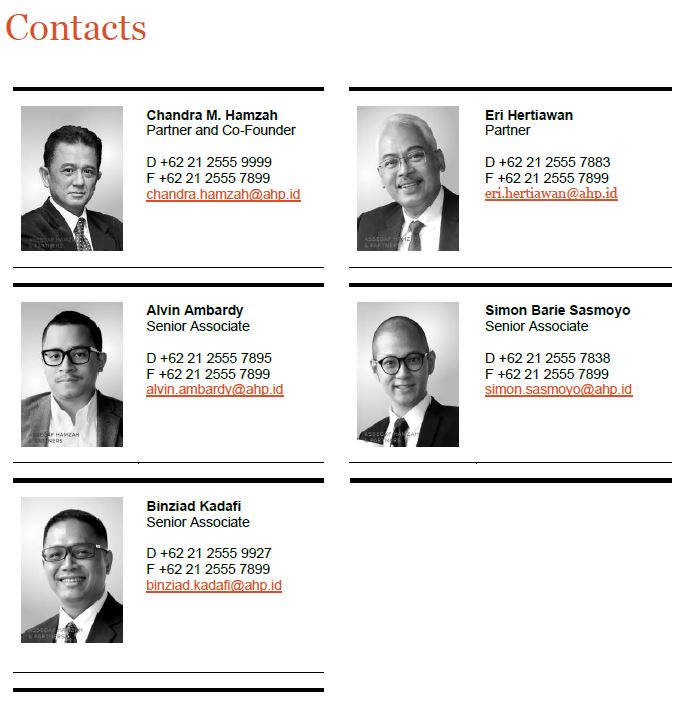Covid-19 Response: Between Lockdown, Quarantine and Massive Social Restriction
For the last couple of weeks, the term ‘lockdown’ has been frequently mentioned both in official media, as well as social media. Some argue that it will be the most pressing and effective action to prevent viruses spread; others appeal to take a closer look as it may adversely affect state economy and livelihood of workers in the informal economy.
Perhaps unknown by many, the government had issued a law on health quarantine (Law No. 6 of 2018 on Health Quarantine) in 2018. This law regulates various types of actions, including massive social restriction and quarantines that can be taken by the government in preventing the spread of a disease and/or any health risk. Below we analyse the above debate in the context of this law.
Public Health Emergency
The law stipulates that the central government may implement health quarantine measures (kekarantinaan kesehatan) in the event of a public health emergency (kedaruratan kesehatan masyarakat). A public health emergency is indicated by the spread of an infectious disease that not only harms public health but also has the potential to spread across borders.
While the spread of COVID-19 seems to meet the criteria of a public health emergency, the law mandates the power to stipulate public health emergency to the central government. This stipulation can only be issued after the government releases the type of disease and the risk factor of the public health emergency. Once the government declares a public health emergency, it can then began to implement health quarantine measures.
Lockdown vs Quarantine
Under the law, health quarantine measures can take the form of, among others, quarantine, isolation, vaccination, referral hospital, disinfection and decontamination of a person, and massive social restriction. Quarantine can be in the form of a house quarantine, hospital quarantine, area quarantine and even border quarantine.
Although there are key differences, the nature of a full-blown ‘lockdown’ as imposed by some countries is somewhat similar to a quarantine under the above law. During a house quarantine, the inhabitants will be prohibited from travelling outside the premises of the house. Conversely, in an area quarantine, while no one will be permitted to enter into or travel outside of the area, the people living inside the area can travel within the borders of such area. This type of quarantine will be enforced by the Health Quarantine Officers and the National Police. Any violation may lead to a criminal penalty.
The law mandates the power to stipulate quarantine to the Minister of Health. Once quarantine is declared, the basic needs of the people and cattle affected by such quarantine will be borne by the central and/or provincial government.
Massive Social Restriction
Other than quarantine, the law also allows the government to stipulate and implement a massive social restriction in the event of a public health emergency. Massive social restriction aims to prevent the spread of a public-health-emergency-disease in a certain area. It can be implemented, at the minimum, in the following forms:
- closing of schools and offices;
- limitation of religious activities; and/or
- limitation of activities in public spaces/facilities.
Massive social restriction can serve as a middle ground for the government as it limits activities without imposing a full quarantine. Unlike a quarantine, during massive social restriction, people are still allowed to travel and fulfil their basic needs (for example, going to the supermarket or pharmacy), and consequently, the government will not be burdened by the public’s basic needs.
So far, we have seen some forms of a massive social restriction in several areas, including Jakarta. However, the determination of a formal massive social restriction must come from the Ministry of Health.
Lack of Implementing Regulation
While the law seems to be a solution for the Covid-19 outbreak, the government is yet to enact an implementing regulation to the law. This means that there is no clear guideline for the stipulation of a public health emergency, quarantine and massive social restriction.
But, given the current situation, the absence of implementing regulations should not stop the government from taking action to prevent further spread of Covid-19 in Indonesia. Indeed, the government can use the discretion1 under Law No. 30 of 2014 on Government Administration to overcome this lack of implementing regulation.
President Joko Widodo stated that “Firmer steps are needed to break the spread of Covid-19.”2 As such, the sooner that the government can stipulate a state of public health emergency, the sooner they can assess the most suitable action to stabilise this national emergency, whether in the form of a moderate massive social restriction or an area quarantine if needed.
- Decisions and/or actions determined or taken by the government to overcome concrete problems that are faced in government administration if the laws that provide choices do not regulate, are incomplete or unclear and/or the government does not take any action.
- https://www.presidenri.go.id/siaran-pers/presiden-fokus-kita-mencegah-meluasnya-covid-19/

***
AHP Client Alert is a publication of Assegaf Hamzah & Partners. It brings an overview of selected Indonesian laws and regulations to the attention of clients but is not intended to be viewed or relied upon as legal advice. Clients should seek advice of qualified Indonesian legal practitioners with respect to the precise effect of the laws and regulations referred to in AHP Client Alert. Whilst care has been taken in the preparation of AHP Client Alert, no warranty is given as to the accuracy of the information it contains and no liability is accepted for any statement, opinion, error or omission.

